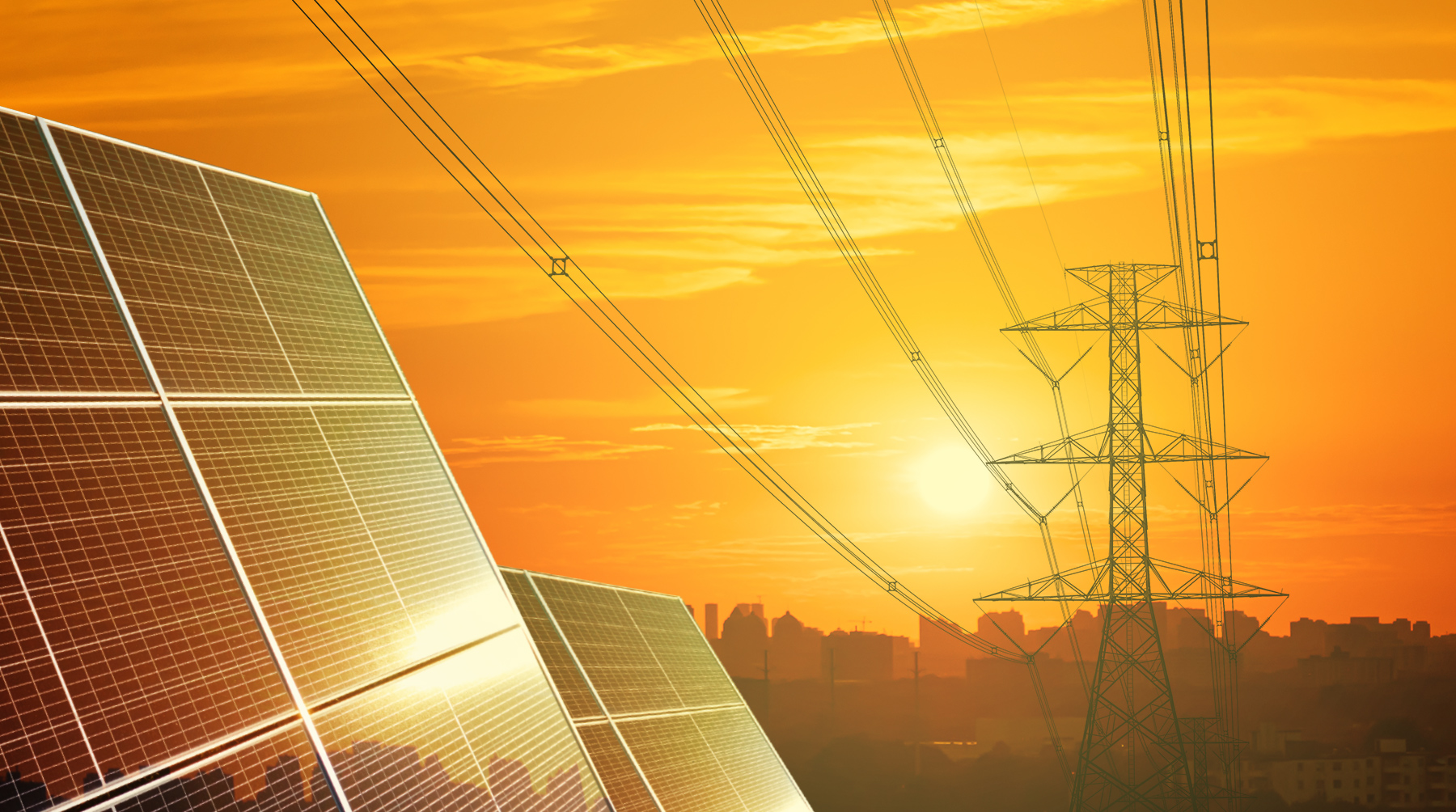An interview with EnergyLab and Ben Hutt, CEO and Managing Director at Evergen
Australian business Evergen has been selected to be part of Australia’s premiere clean energy innovation program. EnergyLab is built specifically to help accelerate high-impact clean energy businesses in Australia and overseas by facilitating collaboration between fast-growing clean-tech companies, energy utilities and other partner organisations.
EnergyLab – I’m curious about Evergen. From what I know, you are a software business that makes battery assets work better, both on a standalone basis, but also as part of the network. Is that right?
Ben – Yes. We build Virtual Power Plant (VPP) technology and partner with retailers who use our software to make fleets of batteries perform as part of their overall trading infrastructure. We’ve also partnered with a bunch of network operators that use our platform to control batteries on the networks to provide grid stabilization services. So from a heritage perspective, we make batteries work and perform better as part of a bigger system by enabling smarter energy. That’s really the essence of what we do.
EnergyLab – So can you control things other than batteries?
Ben – Yes we can, like controlling loads at times where electricity is expensive or grids under duress is important and equally choosing to draw down from the network when there’s an excess of electricity during the day is increasingly valuable.
EnergyLab – You touched on the heritage of Evergen. Can you tell me more about how Evergen began and how you have transitioned to a software as a service company?
Ben – We began with a somewhat unusual collaboration between AMP Capital and CSIRO scientists who were focused on an evolution of the grid and how it was going to evolve to cope with the rising numbers of rooftop solar. And so it kind of began with software that makes a solar and battery system work more efficiently in a home. Down the track, Evergen began commercializing this software by partnering with Tesla and Alpha (around 2016/2017) and started selling batteries and solar to homeowners and through property developers such as Mirvac and others. Really, I would argue that that phase of the business was kind of an early commercialization phase, where the objective was to get lots of batteries out in the field, with lots of hardware, gather data, fine tune the algorithms and kind of make sure that everything worked.
When I took the role at CEO, it was clear that this business model was flawed. There’s a plethora of businesses selling solar and batteries and the opportunity is to help them differentiate so the consumer gets a better outcome and ROI. So now, we are clearly focused on partnering with businesses selling solar and battery. We now have distributors around the country who sell hardware that comes ‘Evergen connected’.
“We’ve got this digital layer that makes it easier to sell, easier to service, easier to fault monitor solar and battery hardware.”
The conversations we are having now are very different to 12 months ago. They have moved from convincing consumers that batteries were valuable to talking about fleets of batteries or megawatt plus batteries. So it sort of feels like with all the good work that the Energy Security Board and the others have done around future system plans, it’s clear that batteries are an integral part of that. Our prediction is that there will be record investments in all size batteries in Australia and we will be effectively stringing those things together and making them perform better.
EnergyLab – My next question was going to be what sets you apart from other VPP providers?
Ben – There’s a bunch of things that make us different. We’ve always believed that having any extra pieces of hardware that you’ve got to attach or install with a battery is not a particularly clever thing. It’s expensive and the installers don’t like it. So what we did is architected our software to always be cloud to cloud from an API perspective. We’ve built a world-leading, very easy to connect to API framework that’s making it really easy for inverter manufacturers and the battery manufacturers to connect to us. And we’re then able to actually connect to batteries that are already installed without sending an electrician or anyone to site. We’ve got the digital onboarding process for many different types of batteries.
This means we’re now very scalable. It also means that our cost to acquire a battery connection is effectively zero. I think the second thing that makes us different, is probably the thing I’m most proud of. It’s our phenomenal team.
One of the things that I bring with me is I’m really old in terms of people that run Startups and I’ve been around the tracks and in my travels I have met some of the finest people in this country. Amazing software engineers, data scientists, and people that just get things done in businesses.
The approach we’ve taken in Evergen over the last 15 months is to automate every single thing we can, let’s build to scale, let’s imagine that our objective is to get control of 50,000 batteries in Australia in the next 12 months, and then replicate what we’re doing elsewhere in the world through a network of partners that we’re building. We’ve needed the right people to do this.
EnergyLab – Can you tell us more about VPPs?
Ben – There is lots of talk about VPPs in Australia and globally but there’s not many real VPPs running. The only VPP that’s operating at scale, the way we would see them operating is the South Australian Tesla/SA Government VPP that’s actually bidding into FCAS every day, generating a lot of revenue and consumers are happy. It’s doing a good job propping up the system.
There’s been plenty of VPP trials, lots of utilities running small VPPs over the last couple of years where they might have 50 or a 100 batteries connected and experimenting with. What we’re seeing now and certainly what’s on the next three month path for Evergen is that by Christmas, we’ll have more than 5,000 batteries connected with a single retailer. And that is the degree of complexity and scale that’s never been seen before, anywhere in the world. This is the era where VPPs will scale. Consumers are buying batteries more readily than ever before, the economics are improving and some of the sort grid scale, so 10 to 30 megawatt projects that we’re involved in at the moment, really tell me that these things are going to get big, fast, so we’re excited.
EnergyLab – How big is the team now?
Ben – We’re about 45 people, of which half is in Australia and the others overseas. We’ve got engineering teams in the Ukraine & Indonesia as well as a big one in Australia, and a whole heap of virtual assistants in Indonesia, doing things that are really valuable, but better done by people there then our core team here. And of our team about 60% of our people and money is spent on software engineers and data scientists, so that’s really what you need to do as a software business, you’ve got to prioritize product.
We have sort of four very simple values that are around trying to enjoy the ride like the ups and downs. Talk straight and listen hard. So really be very clear in your communications and listen, like it’s the most important thing. And pull together, ultimately get better, faster, smarter every day. So we’re very, very aligned as a team, which is great.
EnergyLab – How are you looking to expand offshore?
Ben – We will absolutely expand offshore. Having built companies when I was running Search Party in the UK, Canada and the US, one of the things I learnt is that being spread too thin is dangerous. So our strategy for going off shore is either to partner with local utilities or go with another partner. And we’ve got a couple of very strong partners that are ready for what we do when we’re ready, probably in six months or so. It’s all just a function of bandwidth. So our goal in the immediate term is to basically get to the 50 megawatts in Australia as quickly as possible with a range of utility and other deals that we’ve done, and that will become public relatively soon. And then when we’ve done that, and we’re sort of in a relatively stable position, I think then some of my attention will go naturally overseas.
Let me just explain why 50,000 batteries is important. It’s 50 megawatts, which is effectively the production of a small coal-fired power station. So in Evergens world, we adopted a vision and a mission about a year ago that said that in the next three to five years, we’ll destroy a coal-fired power station in each of 10 countries by controlling electricity and batteries.
EnergyLab – So to wrap up, what do you see as the future of the energy system?
Ben – There’s two key evolutions that we’ll see. Things like communities at the end of long stringy feeder transmission lines and distribution lines, sort of being cut off the grid and effectively made to be self sufficient in micro grids with standalone power and solar and battery. I think that’ll be a thing of the future. The second thing I think will happen, which is again, a similar theme is that we’ll see a larger number of smaller systems. So in my mind, the resilient system is an aggregation of lots of small things, so that if one thing breaks, it doesn’t turn the whole system off.
Currently the way the energy system is built is it’s kind of like if a butterfly flaps its wings in South Australia on a hot day, the power goes off in Queensland, which is kind of not really very helpful for people in Queensland. So I think we’ll see lots of micro grids and we’ll see lots of VPPs. We’ll see probably a much smaller degree of our energy consumption overall being sucked off major assets like coal-fired power stations. I think they’ll close probably faster than people think because of the rapid growth in solar and wind. I think we’re actually seeing a really good rapid transition in the physical infrastructure at the moment. The challenge still remains on federal policy and regulation, both of which are a bit behind where we’re at in reality.
EnergyLab – Are you looking for investment right now?
Evergen is well funded to execute our plan in Australia. At some point there will be an opportunity to grow overseas and when that comes we will no doubt be open to investment to support this.



